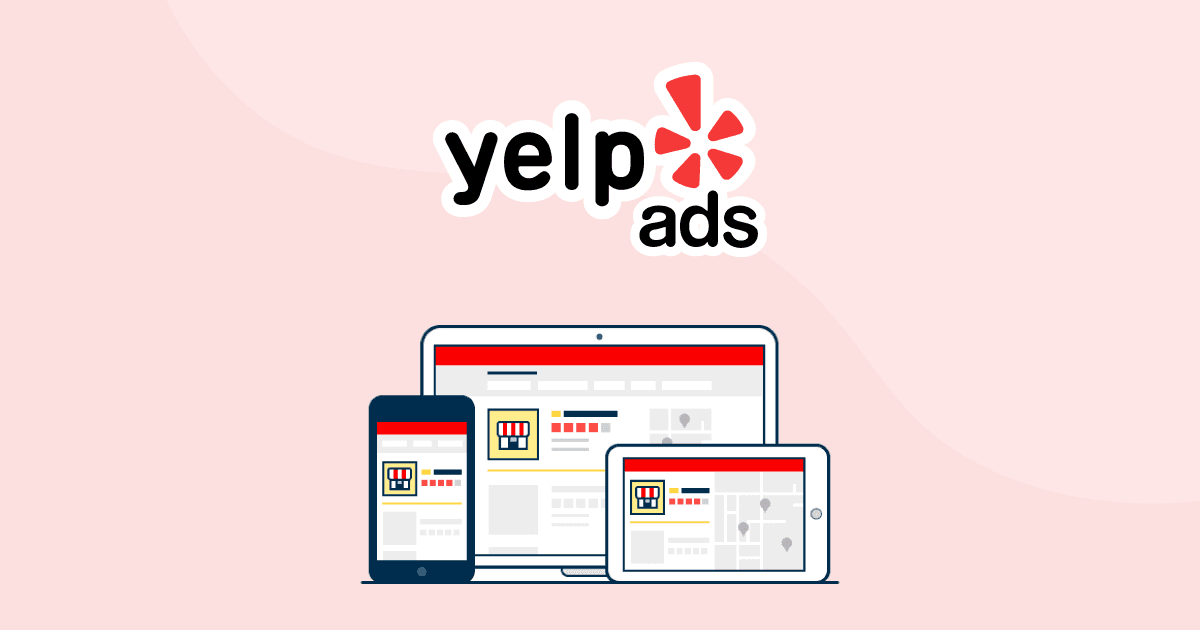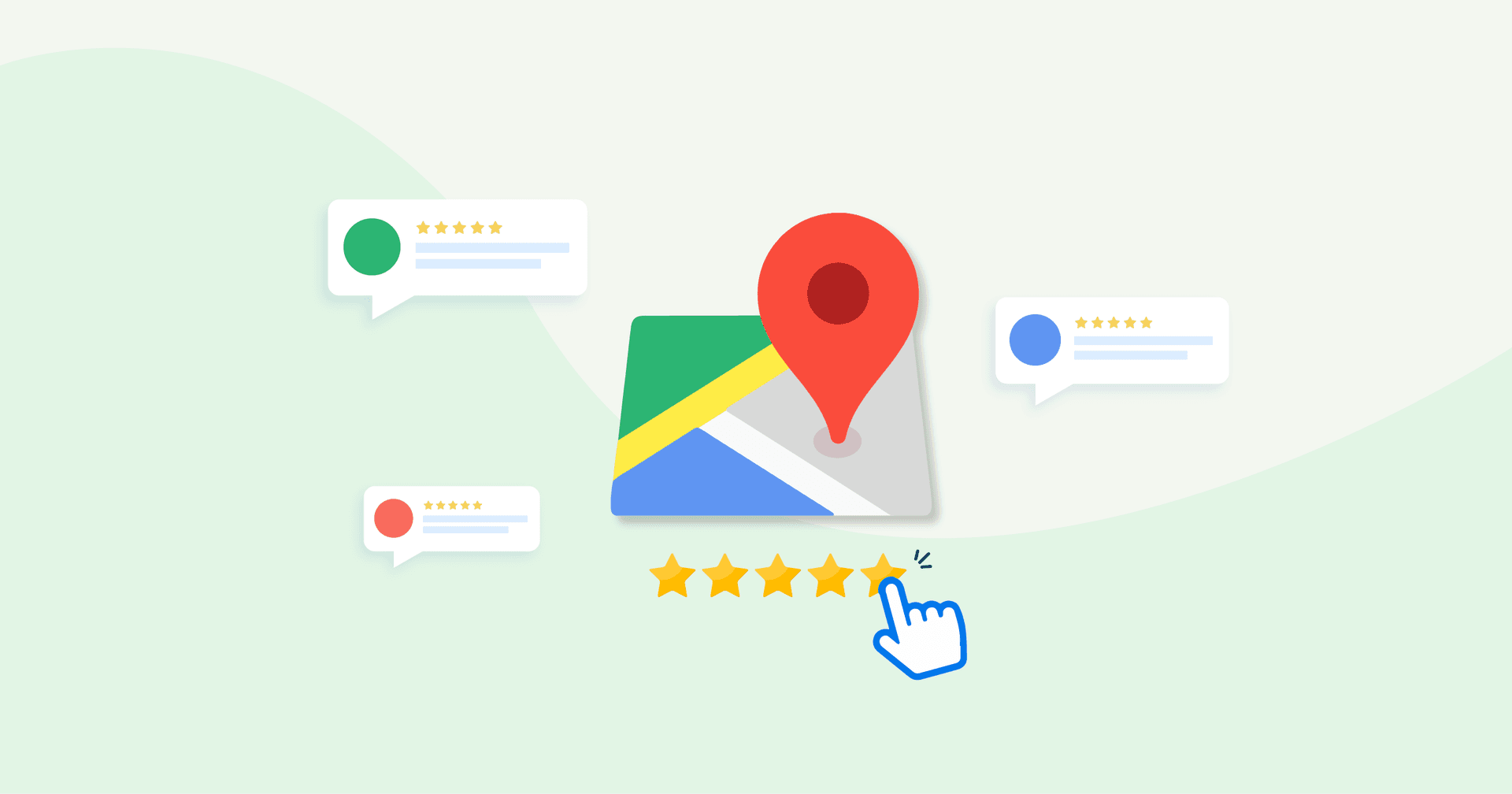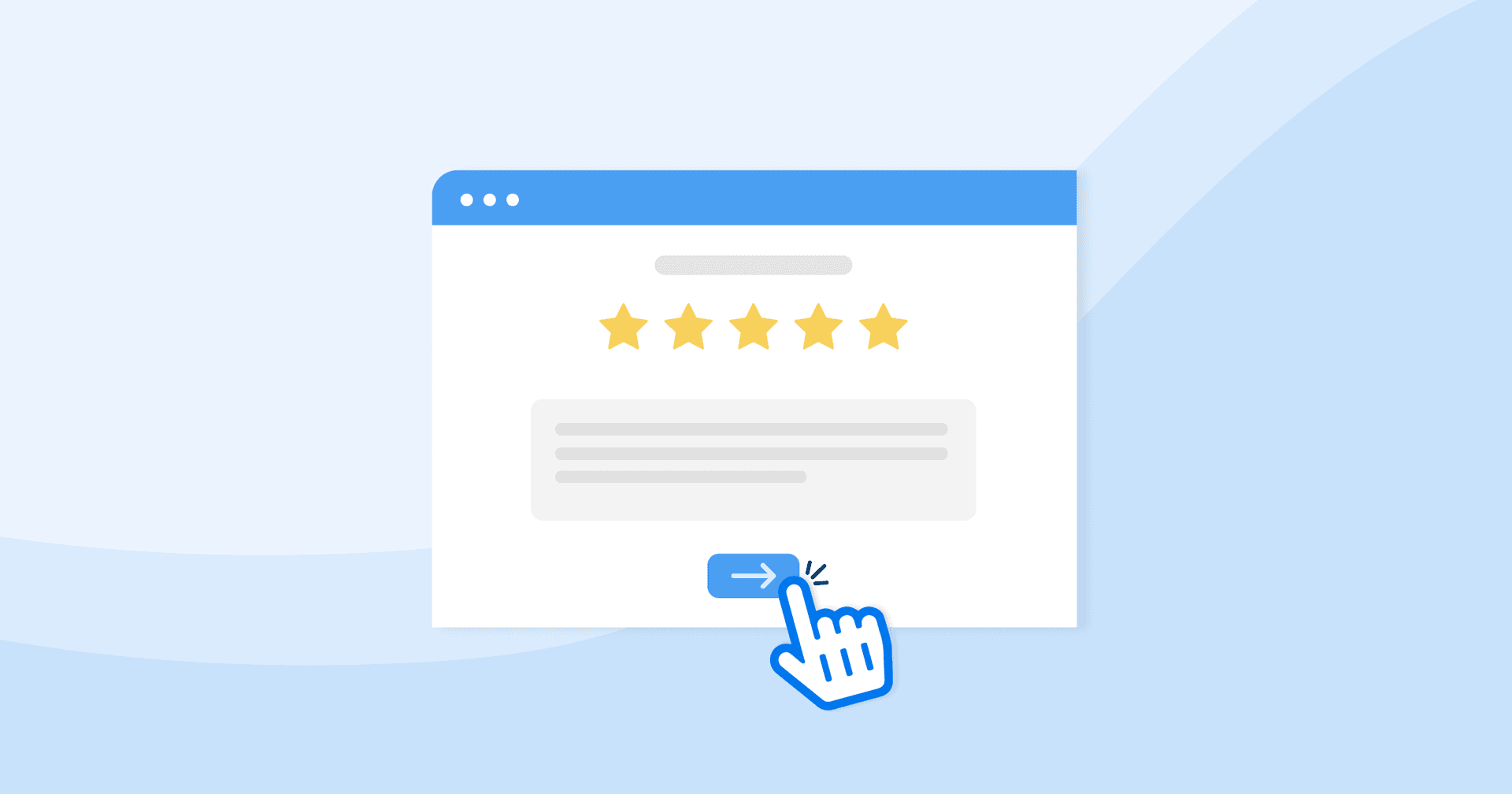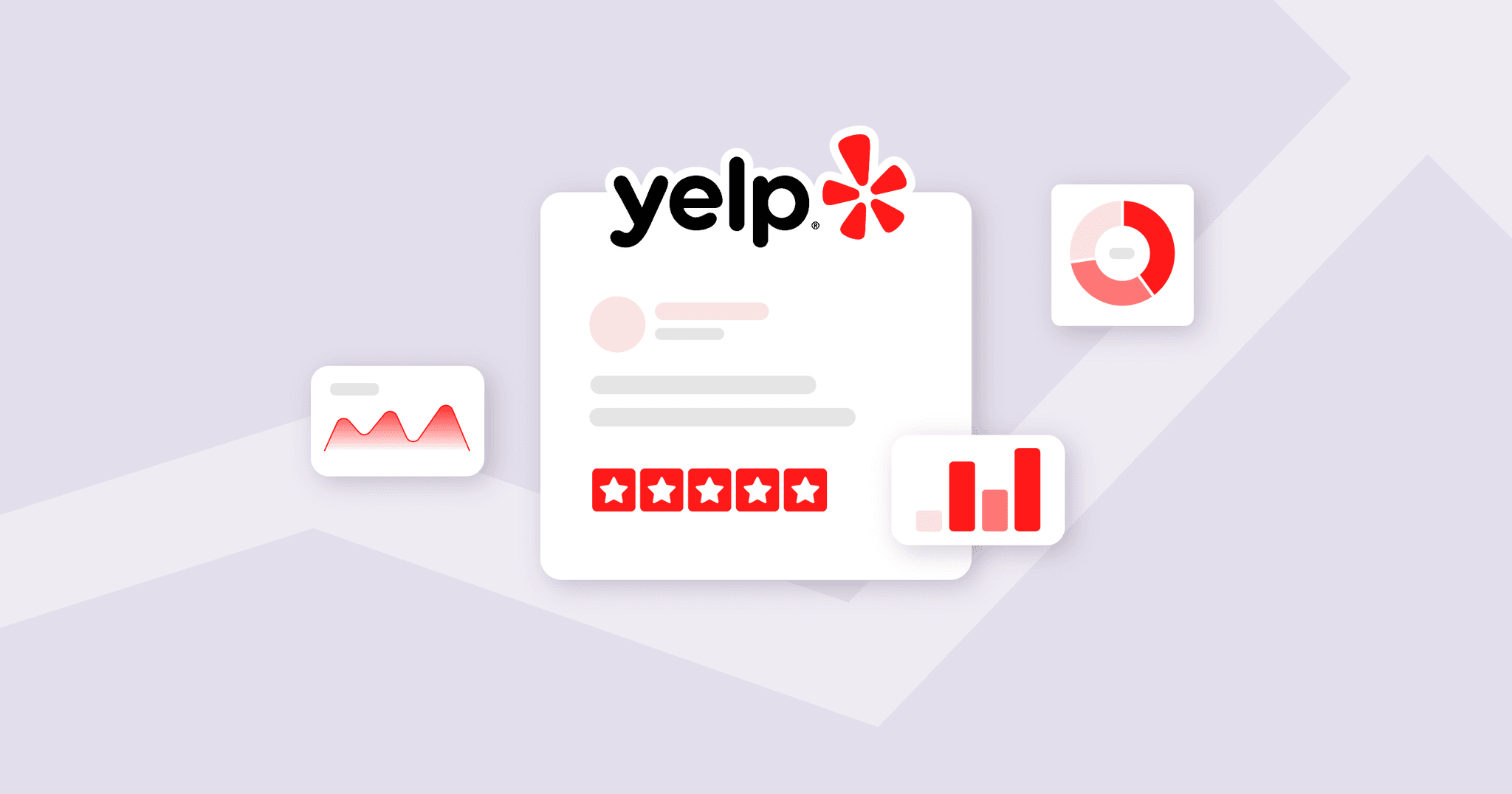
QUICK SUMMARY: Yelp analytics empower your agency to measure, track, and interpret the performance of your clients’ presence on the platform. This data enables your team to understand customer engagement, sentiment, and behavior, informing strategies to optimize a client’s Yelp presence and drive business growth. Find the top 8 Yelp metrics to track and how to make sense of them in this article.
Historically, local businesses relied on word-of-mouth recommendations to earn new clientele and stay competitive. This remains true, but a brand's online presence and reputation on review platforms like Yelp now make even more of an impact. To help your clients understand their Yelp presence and drive impactful, data-informed strategies for them, tapping into Yelp analytics is a must for your marketing agency.
Keep reading for everything you need to know about tracking Yelp data for clients, sharing insights effectively, and which metrics matter most!
Learn more about:
What Is Yelp? How the Review Platform Has Evolved
Yelp was founded in 2004 by Jeremy Stoppelman and Russel Simmons. It initially began as an email-based restaurant recommendation service called "E-mail Pays You," and later transformed into a web-based platform for local business reviews. The shift came after Stoppelman and Simmons struggled to find reliable recommendations for local businesses, which prompted them to create a platform where users could share their experiences and opinions.
Yelp's growth was rapid thanks to its user-friendly interface, large database of reviews, and the rise of smartphones, which allowed users to access reviews on the go. The platform expanded beyond restaurant reviews to include businesses across various industries, from salons to mechanics.
As of 2023, Yelp remains a dominant force in the online review space with over 32 million unique devices using the app and over 287 million reviews. It's well-established as a go-to resource for consumers seeking information about local businesses, and businesses increasingly rely on Yelp to attract new customers and manage their online reputations.
The platform continues to innovate, introducing features like Yelp Reservations and Yelp Waitlist to enhance the user experience and provide additional value to both consumers and businesses. Over the years, it's evolved from a simple email-based recommendation service to a powerhouse in the online review industry. Its ability to adapt to changing consumer behaviors and needs and maintain relevance underscores its position as a key player in the market today.
Easily Track All Your Client’s Yelp Metrics
Start Your Free Trial Today!
What Are Yelp Analytics?
Yelp Analytics are the data provided by Yelp that helps businesses gain insights into their performance on the platform. Whether it's through detailed metrics, reports, or data-driven insights, this information enables businesses to track and analyze various aspects of their presence on Yelp, including review activity, consumer engagement, and overall brand performance. Tracking and understanding Yelp analytics is crucial for businesses looking to optimize their online presence and attract more customers through the platform.
Why Yelp Analytics Are Important for Local Businesses
Yelp analytics offer invaluable insights into consumer behavior and preferences within their geographic area. Analyzing metrics like search terms, location data, and user demographics helps businesses to better understand their target audience and tailor their marketing efforts accordingly. Tracking trends over time helps local businesses keep up with shifting customer preferences and expectations.
Yelp analytics also help businesses monitor and respond to customer reviews, enabling them to maintain a positive online reputation and address any issues promptly. One of the unique applications of Yelp analytics is to connect online consumer activity with offline business outcomes. For example, businesses can track the number of reservations or appointments booked through Yelp and correlate this data with sales figures to determine the impact of their Yelp presence on revenue generation.
We care mostly about reviews as this can also help with website SEO as well as brand trust. Reviews come from real customers of yours and give the best insight to new customers if you are the right fit and are going to give the best service for them.
Layne Sparks, Head of SEO, KWD
Why Yelp Analytics Matter To Marketing Agencies
Yelp analytics provide your agency with valuable insights into consumer behavior, sentiment, and engagement within a local context. Analyzing a client's Yelp data enables your team to identify trends, opportunities, and areas for improvement. This information will inform the strategic decisions you make for your clients, allowing your agency to tailor marketing efforts to target specific demographics, optimize online presence, and enhance customer satisfaction.
Beyond informing your agency's approach, Yelp analytics also enable you to track the effectiveness of your campaigns, measure ROI, and demonstrate tangible results to clients. Overall, leveraging Yelp analytics empowers your marketing agency to deliver data-driven solutions that drive growth and success for your clients.
Where To Find Yelp Analytics in the Native Platform
Yelp hosts data analytics and metrics for businesses with listings on the platform. These native analytics provide users with valuable information about their business listing and market context. To access analytics within the platform, follow these steps:
1. Log in: Visit the Yelp website or open the Yelp app and log in.
2. Navigate to the Activity Feed: This dashboard is where businesses track activity related to their Yelp presence and access analytics.
3. Explore the Analytics Section: Within a business account, the analytics section has various tools and features to track and analyze a business's performance on Yelp. This includes metrics like page views, clicks, review activity, and more.
4. Review Reports and Insights: Delve deeper into analytics by exploring the reports and insights provided by the platform. These reports offer valuable information on consumer behavior, search trends, competitive benchmarking, and other key metrics.
Overall, the native analytics tools available in Yelp are helpful for businesses seeking to better understand their visibility, customer satisfaction, and word-of-mouth marketing. That said, the platform's analytics capabilities are still somewhat rudimentary. Additional reporting tools or combining Yelp metrics with data from other sources will ultimately paint a clearer picture of a business's reputation and customer satisfaction levels.
What Metrics Are Available in Yelp’s Native Analytics?
Here's a list of metrics available within Yelp's native platform:
Total Reviews: The total number of reviews received by a business.
Average Rating: The average numerical rating based on customer reviews.
Page Views: The number of times a business's Yelp page has been viewed by users.
Clicks: The number of times users have clicked on various elements of a business's Yelp page, such as photos, reviews, or website links.
Review Engagement: Metrics related to the level of interaction between businesses and customers on Yelp, including helpful votes, comments, and owner responses.
Consumer Actions: The actions taken by users on a business's Yelp page, such as calls, directions requests, website visits, and reservations.
Search Impressions: The number of times a business's Yelp page has appeared in search results for relevant queries.
Competitive Benchmarking: Comparing a business's performance on Yelp against industry peers or competitors.
Yelp Metrics vs. KPIs in an Agency Context
Yelp's native platform provides businesses with a good range of metrics to track their performance on the platform, and these metrics are useful for both your agency and your clients. However, they don't always tell a complete story. A client's Yelp data is just one character in the greater cast of their marketing, advertising, and brand reputation efforts.
Key Performance Indicators (KPIs), on the other hand, bring a narrative to the data. They help illuminate how Yelp performance is contributing to greater business objectives, like driving brand awareness and affinity, or increasing new clients coming from a company's online presence. This is essential for marketing agencies because the better you communicate the impact to your clients, the better you ultimately communicate the value you're providing to them.
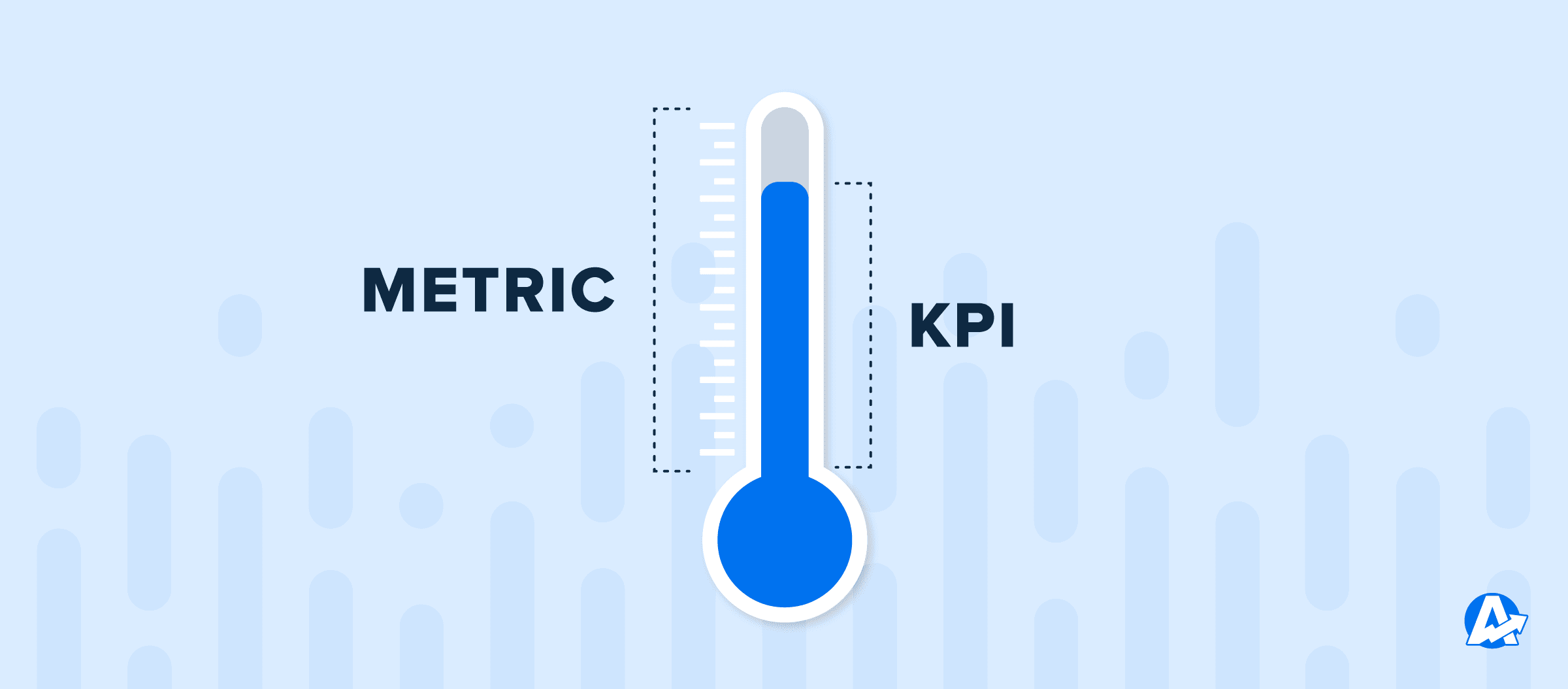
Reinforcing Your Agency’s Value With KPIs
While Yelp's native metrics provide valuable insights into day-to-day performance, KPIs serve as overarching benchmarks that align with a client's strategic business goals and objectives. KPIs that your agency might choose to measure include:
Revenue Growth: The increase in a client's sales or revenue attributed to your agency's marketing work, measured over time.
Customer Acquisition Cost (CAC): The cost incurred to acquire a new customer, in this case most likely through Yelp marketing efforts.
Return on Investment (ROI): The ratio of a client's investment in your agency's services compared to the resulting revenue or profit generated for the client.
Online Reputation Management: Metrics related to a client's reputation on Yelp, including review ratings, response rates, and sentiment analysis.
By aligning KPIs with a client's strategic objectives, your agency reinforces the value you provide and showcase the impact of your marketing efforts on a client's bottom line. This requires a holistic approach that goes beyond tracking surface-level metrics to analyzing data, identifying trends, and implementing strategies that drive measurable results and business growth.
Ultimately, the ability to translate native metrics into meaningful KPIs is essential for demonstrating the value of your agency's services and fostering fruitful and long-term client relationships.
Top 8 Yelp Metrics to Track for Clients
Tracking key metrics on Yelp is crucial for understanding a client's performance on the platform, and making informed decisions to enhance their online presence. Whether your agency is starting to work with a client that's already active on Yelp, or implementing a Yelp strategy for a client, these top metrics are worth measuring and tracking over time. Plus, find tips on how to frame each metric contextually for your clients.
1. Total Reviews
A client's review count on Yelp is a fundamental metric to track because it reflects the volume of feedback coming from customers. It helps gauge customer engagement levels overall, and tracking trends in review volume over time helps measure the success of marketing and customer satisfaction initiatives. The total number of reviews a business has also serves as a reference point when considering other metrics.
How To Frame It: The number of reviews a business has ultimately impacts how trustworthy customers believe the reviews to be. According to BrightLocal's 2024 consumer review survey, 59% of consumers say a business should have between 20-99 reviews for them to trust the star rating.
We educate our clients on how important it is to focus on getting detailed reviews. Reviewers who mention specific products or services can drive tons of business. Reviews matter.
Kira Krostag, CEO and Founder, Site Smart Marketing
2. Average Rating
The average rating of a business on Yelp is of course a critical metric that influences consumer perception and purchasing decisions. A high average rating indicates positive customer sentiment and enhances a business's reputation, while a low rating may deter potential customers. Tracking changes in average rating over time helps your clients assess their performance and take proactive measures to maintain or improve their reputation.
How To Frame It: Everybody wants a 5-star rating—but this is hard to achieve, and might not be necessary to secure a solid reputation. BrightLocal found that 40% of consumers look for a 4-star rating to feel confident in selecting a business or service provider.
3. Review Engagement
Review engagement metrics like the number of helpful votes received, comments, and owner responses all measure the level of interaction on a client's Yelp listing. High engagement levels signal active participation and responsiveness from both the business and fellow customers. On the other hand, low engagement might signal that a business is disengaged with its customer base.
How To Frame It: A business's responsiveness is in fact important to customers. In BrightLocal's survey, 88% of consumers stated they would use a business that replies to all of its reviews, while just 47% said they would use a business that doesn’t respond to reviews at all.
4. Search Impressions
Search impressions represent the number of times a business's Yelp page has appeared in search results for relevant queries. Tracking search impressions helps your clients evaluate their visibility and prominence in search results. Impressions reveal useful information about how new customers find a business, what they're searching for, and how to best optimize a client's Yelp page so it shows up more often.
How To Frame It: Without an impression, there can't be a page view, and without a page view, there can't be a conversion (more on that in #5 and #7). Search impressions indicate how visible your client is to their target audience, and this opens up conversations about how your agency might boost that visibility. This might be through SEO tactics, increasing review engagement, soliciting more reviews, or something else.
5. Page Views
Page views represent the number of times a business's Yelp page has been viewed by users. Tracking page views helps your clients gauge their visibility and attractiveness to potential customers. An increase in page views suggests growing interest and awareness, while a decline may indicate a need for optimization either of the Yelp listing itself, or other marketing tactics that will draw in new clientele.
How To Frame It: This is a very important reference metric, and is particularly useful to look at in relation to search impressions and consumer actions. The number of page views compared to search impressions is one type of conversion, and actions to page views is another. Each one indicates a different area of the pipeline where a client might be losing potential new customers—and surely your agency has ideas on how to solve it!
6. Clicks
Click metrics track user interactions with a client's Yelp page, including clicks on their photos, reviews, website links, and call-to-action buttons. Monitoring clicks helps your client understand how users engage with their content and navigate their Yelp page. Click data helps your agency identify customer areas of interest, optimize client content, and improve the user experience to drive more conversions and actions.
How To Frame It: Customers often want to get to know a business online before visiting it in person, and they want to find content they can interact with. A Digital.com survey found that 91% of shoppers will look up a business online before visiting a brick-and-mortar store. Here's what they're looking for:
76% are looking for pricing information.
58% want to check offerings like inventory, menus, or services.
57% want to verify a business’s hours of operation.
54% are hunting for coupons or discounts.
Each and every one of these pieces of information can be listed on a client's Yelp page, and if their clicks are low, it could indicate that the content is lacking in the substance people are seeking out. This presents a perfect opportunity for your agency to recommend an update!
7. Consumer Actions
Consumer actions metrics measure the next steps taken by users on a business's Yelp page. This might include calls, directions requests, website visits, and making reservations. Tracking consumer actions helps your clients assess the effectiveness of their Yelp presence in driving conversions and engagement. Monitoring consumer actions helps your agency identify what next steps customers are taking, and optimize a client's marketing strategies accordingly.
How To Frame It: A high conversion rate of actions over page views is great news for clients. Low conversion, on the other hand, could indicate that something's amiss. Depending on the nature of the business, your agency might put forward different recommendations of how to optimize the page content to drive higher conversions, whether that's in the form of reservations or appointments booked, reviews left, website visits, or something else.
8. Competitive Benchmarking
Competitive benchmarking metrics allow businesses to compare their performance on Yelp against competitors in the same industry or location. Key benchmarking metrics may include average rating, review volume, page views, and search impressions. Analyzing competitive benchmarking data helps your agency identify a client's strengths, weaknesses, and areas for improvement relative to competitors.
How To Frame It: It's not about copying competitors—it's about finding ways to stick out from the herd. Understanding a client's competitors is as much about finding weak points as strengths, and opportunities to scale back or double down. Your agency might suggest new types of content, calls-to-action, or engagement efforts for a client to take with Yelp users.
Receive Agency Growth Tips, Delivered to Your Inbox
Turning Raw Yelp Analytics Data Into Actionable Insights
Providing clients with raw Yelp analytics data is only the first step. To truly drive results, it's essential to turn these numbers into actionable insights that inform strategic decisions and initiatives. By translating data into actionable recommendations, your agency will be better equipped to help clients optimize their Yelp presence, attract more customers, and achieve their goals effectively.
Tips for Transforming Raw Data Into Actionable Insights
Here are some helpful tips for translating numbers into knowledge that empowers clients to improve their marketing tactics:
Set Clear Goals & KPIs: Define specific objectives and key performance indicators (KPIs) that align with the client's goals and objectives early on. This provides a clear focus for analysis and ensures that insights are relevant and actionable.
Identify Key Metrics: Focus on identifying the most relevant metrics that directly impact the client's success on Yelp. Prioritize metrics that align with the client's goals and provide actionable insights for improvement to avoid information overload or getting side-tracked.
Analyze Trends: Look beyond individual data points and analyze trends over time to identify patterns, fluctuations, and opportunities for optimization. Understanding trends enables your agency to make informed recommendations and adjust strategies accordingly.
Benchmark Against Competitors: Compare the client's performance on Yelp against industry peers and competitors to understand their strengths, weaknesses, and areas for improvement. Benchmarking provides context, helping your agency offer actionable recommendations to enhance a client's competitive position.
Connect the Dots With Other Platforms: Integrate Yelp analytics data with data from other online channels and platforms to gain a holistic view of the client's digital presence. Connecting the dots enables your agency to identify broader trends, optimize multi-channel marketing efforts, and maximize overall performance.
Use Insights To Drive Strategy: Take the actionable insights derived from analytics data to inform strategic decisions, recommendations, and marketing strategies. Leverage Yelp insights to help clients optimize their Yelp presence, attract more customers, and achieve tangible business outcomes.
Transforming raw analytics data into actionable insights is essential for driving results and achieving success for clients. These tips help your agency support your clients in achieving their objectives.
How To Create Yelp Reports Using AgencyAnalytics
AgencyAnalytics offers a comprehensive reporting solution tailored specifically to the needs of marketing agencies. The platform consolidates data from more than 80 platform integrations like Yelp, Google Analytics, Facebook, and other marketing tools to provide a complete view of marketing performance across channels and clients. Here's how to create reports for your clients with AgencyAnalytics:
Connect Sources: AgencyAnalytics offers {{integration-count} integrations with popular marketing platforms to gather data from multiple channels and tools in one place. Your client's Yelp data will be displayed alongside their website, social media, and advertising data, creating a holistic overview of multi-channel performance.
Set Up Custom Dashboards: Create personalized dashboards for each client with white labeling, customizable widgets, and various data visualization options. Custom reports showcase the most relevant Yelp metrics alongside other key performance indicators.
Automate Reporting: Streamline your agency's reporting processes with reporting automation features like pre-built templates and a drag-and-drop report builder. AgencyAnalytics updates dashboards automatically, giving clients real-time access to their marketing performance metrics without manual intervention.
Keep Client Data Secure: Maintain control over client data with granular access permissions for both team members and clients, giving secure access to reporting dashboards as needed. AgencyAnalytics offers peace of mind with robust security measures to protect sensitive information.
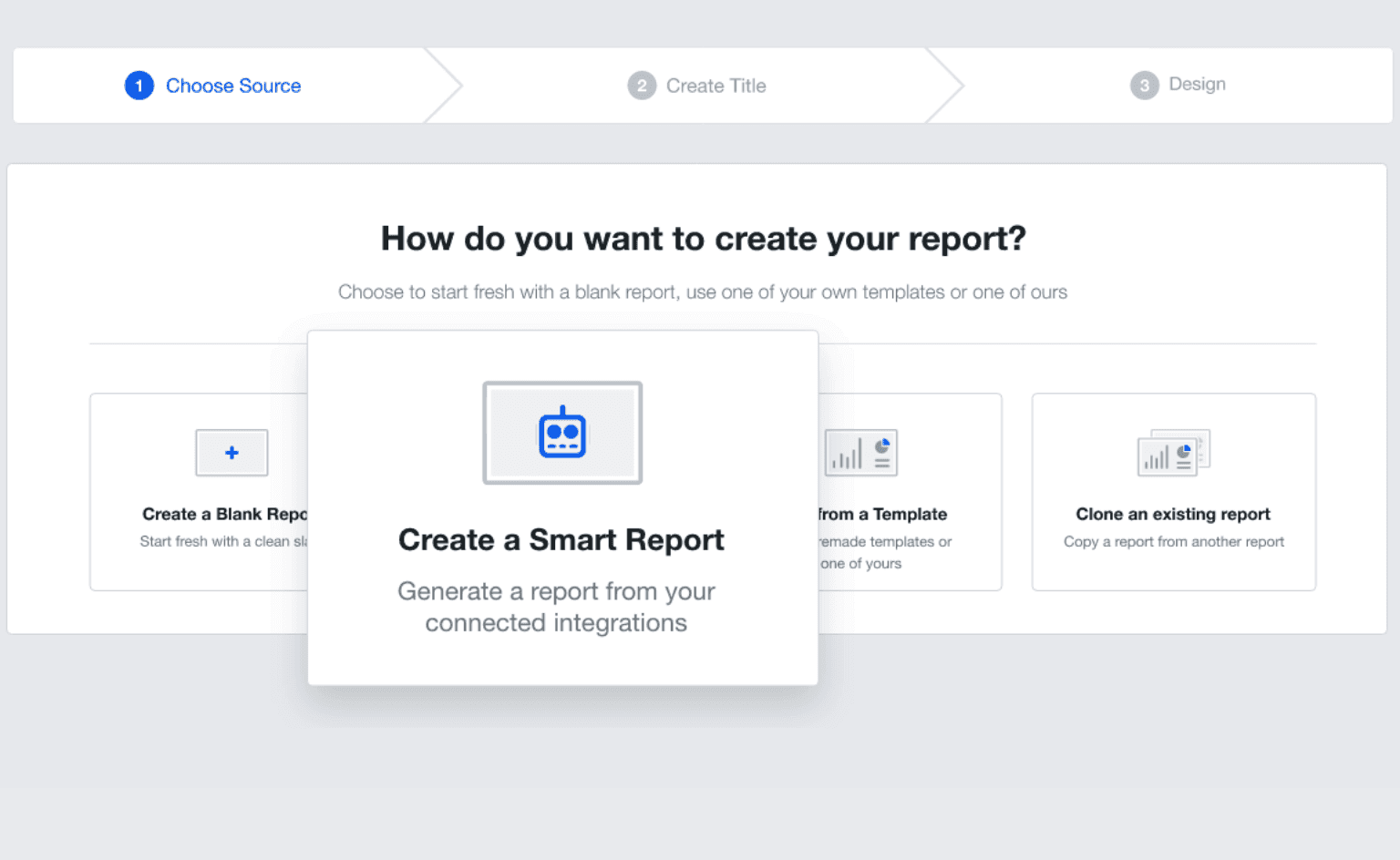
With AgencyAnalytics, your agency will be well-equipped to deliver insightful reports to clients, in as little as 11 seconds. Sign up for your 14-day free trial to see for yourself!
5 Tips for Creating Yelp Reports That Wow Clients
Reports help your agency communicate the efficacy of your strategies and demonstrate the ultimate value you provide to clients. Here's how to craft exceptional reports that go beyond the basics:
Combine Yelp Data With Other Campaign Metrics: Integrate Yelp data with metrics from other online channels and platforms to tell a complete story about marketing campaigns. A comprehensive view of performance across multiple channels helps clients understand the complete impact of your agency's hard work.
Track the Right Yelp Metrics: Focus on tracking key metrics that align with your client's goals and objectives. By focusing on the metrics that matter most, you demonstrate your agency's understanding and alignment with a client's bottom line.
Focus on the Results That Matter: Highlight results that have the most significant impact on your client's business. This may include revenue growth, customer acquisition, brand awareness and affinity, and return on investment.
Use Automated Reporting Tools: Leverage automated reporting tools like AgencyAnalytics to streamline the report creation process and ensure consistency and accuracy across reports. It helps you gather, analyze, and visualize data from Yelp and other sources, saving time and effort while delivering professional and polished reports.
Wrap Results in Your Agency’s Brand: Customize reports with your agency's branding to reinforce your identity and professionalism. Include your agency's logo, color scheme, and contact information to create a cohesive and branded experience for your clients.
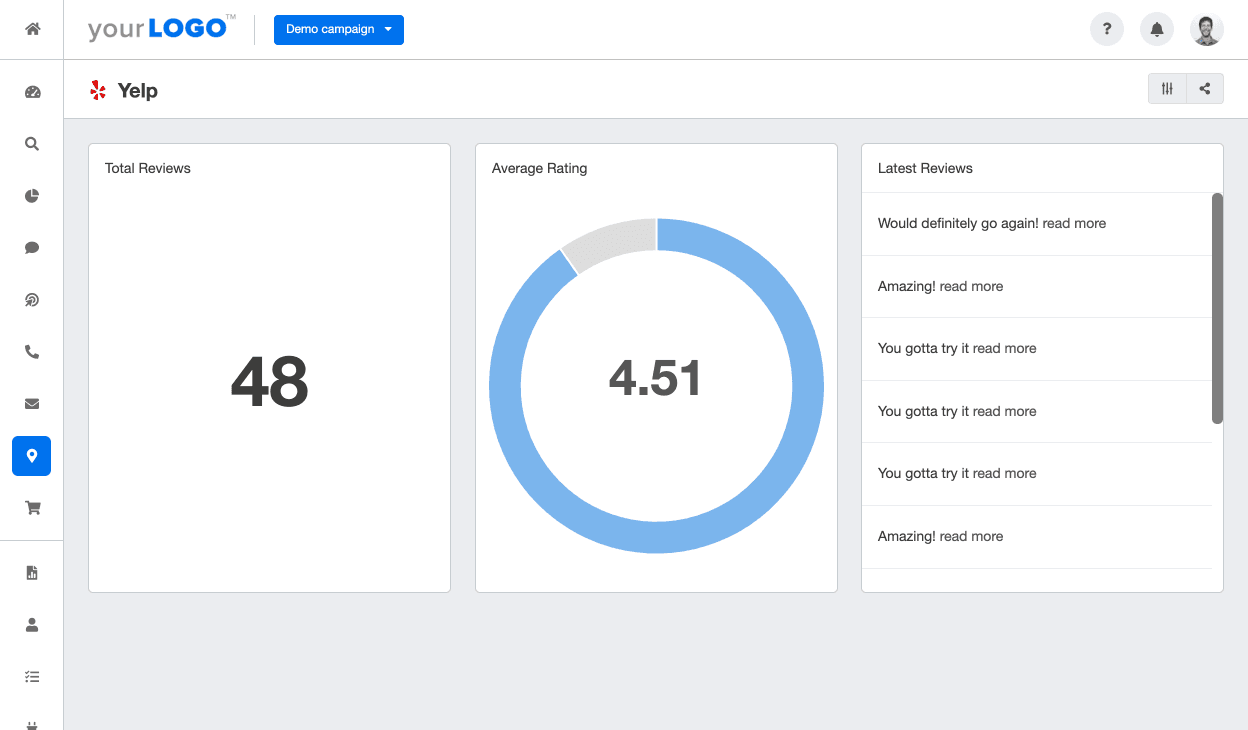
Drag and drop widgets to quickly create custom Yelp reports with just a few clicks. Try AgencyAnalytics free for 14 days.
These tips help your agency take reports from nice to next level. Not only will you be conveying more nuanced and insightful information, you'll also be strengthening your agency's expertise and professionalism, and solidifying client relationships.
Don’t Waste Another Billable Hour on Manual Reporting!
Try AgencyAnalytics Free for 14 Days
Comparing Yelp Native Analytics Platform to AgencyAnalytics
When it comes to analyzing Yelp data and creating comprehensive reports for clients, both the native platform and AgencyAnalytics offer unique benefits. While Yelp's native analytics provide direct access to data without additional setup, AgencyAnalytics offers advanced features tailored to the needs of marketing agencies. Here's a comparison of the two:
| Yelp Native Analytics Tool | AgencyAnalytics |
|---|---|---|
Direct Integration | Yelp Native Analytics Tool Easily access Yelp analytics. No extra setup is required. | AgencyAnalytics Connect in seconds using the Yelp integration. |
Use Cases | Yelp Native Analytics Tool All Yelp users with a Company page. | AgencyAnalytics Built specifically for marketing agencies. |
Cost | Yelp Native Analytics Tool Included with Yelp, no additional charge. | AgencyAnalytics Included with every AgencyAnalytics reporting platform |
Multi-Platform | Yelp Native Analytics Tool Focused solely on Yelp analytics. | AgencyAnalytics Consolidates data from over 75 marketing platforms. |
User Interface | Yelp Native Analytics Tool Simplified and specific to Yelp data. | AgencyAnalytics More customizable using widgets, custom metrics, and the drag-and-drop editor. |
Reporting | Yelp Native Analytics Tool Standard Yelp reporting tools, less customization available. | AgencyAnalytics Advanced report customization, including complete white labeling capabilities. |
Client Management | Yelp Native Analytics Tool No built-in client management or report sharing tools. | AgencyAnalytics Features like client dashboards, report templates, and custom access for staff and clients. |
While Yelp's native analytics tools offer direct access to Yelp data, AgencyAnalytics provides marketing agencies with advanced features, multi-platform integration, and customizable tools to streamline client report creation and management.
Building reporting is very hard. AgencyAnalytics makes it very easy. Especially when we are managing Yelp, Google Business, Analytics, Search Console, Ahrefs, Facebook, YouTube...all the things. AgencyAnalytics has a very robust integration set... We can just plug it in and get insights into it. We don't have to build anything new. We build the dashboard, the report and we can give our clients access to these campaigns and it's really easy to give them a high-level overview and allow them to have an in depth look if they want it.
Lane Rizzardini, Co-Owner, Marion Relationship Marketing
Yelp Analytics Summary and Key Takeaways
Here are a few key things to remember from this article, to help put your agency's best foot forward in tracking, analyzing, and reporting on clients' Yelp data:
Evaluate Your Current Yelp Analytics Approach: Assess how your agency currently monitors Yelp performance, and whether it's as effective as it could be. Consider factors like consistency, metrics selection processes, and your team's ability to contextualize Yelp data for clients.
Explore Third-Party Tools: Look into analytics tools that might support and streamline your agency's reporting processes. Reporting platforms like AgencyAnalytics offer a range of functionalities that alleviate manual workloads and ensure a professional touch.
Customize Reports: Tailor your Yelp reports to reflect each client's specific priorities, goals, and expectations. You might also add custom branding to reinforce your agency's professionalism and expertise.
Set Up Automated Reporting: Automated report scheduling keeps clients informed about their marketing performance and frees up valuable time for your agency. This allows your team to focus on the hands-on work of strategizing and executing client marketing and advertising campaigns.
Remember that reporting on outcomes is as important as achieving them. If your agency is well-equipped to effectively communicate your accomplishments to clients, it helps you to solidify your strategic partnerships and demonstrate your business savvy. The tips, tools, and tactics outlined in this article will help your agency take your Yelp reporting up a notch, offering more valuable insights to clients and doubling down on the value you provide.
Join more than 6,500 marketing agency clients and start generating comprehensive, custom white labeled reports today. Try AgencyAnalytics free for 14 days.
Spend More Time on Strategy, Less Time on Client Reporting
Try AgencyAnalytics FREE for 14 Days!
Written by
Kyra Evans is the Senior Content Marketing Manager at AgencyAnalytics. She has over 15 years of experience writing content for SaaS, tech, and finance brands. Her work has been featured by HuffPost and CBC, and she serves an engaged social media readership of over 30,000 community members.
Get Started for Free


